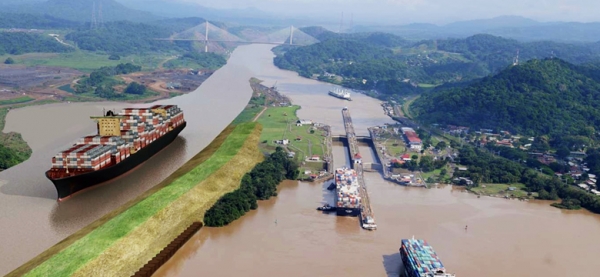US ports prepare for Panama Canal expansion, and PortEconomics associate member Grace Wang examines the degree of readiness to accept Post-Panamax vessels after the new set of locks begins operation in 2015, in a report published with sponsorship from the NAIOP Commercial Real Estate Development Association.
The report focuses on nine container ports on the nation’s East and South coasts: the East Coast ports of New York and New Jersey and Baltimore; the Southeast ports of Virginia, Charleston and Savannah; the Florida ports of Miami, Jacksonville and Everglades; and the Gulf port of Houston. Each of these ports is in a different stage of readiness to accept Post-Panamax ships. Some already are prepared to accommodate them. Some are in the process of expanding their waterside and landside facilities in order to accommodate them. Others are not yet implementing these types of expansion efforts or, if they have begun to do so, have not yet made significant progress. It is not clear when, if ever, these ports will be ready.
Grace Wang, joined by Antony Pagano have examined each of the nine ports from a variety of perspectives to understand its degree of readiness to accept Post-Panamax vessels after the new set of locks begins operation in 2015. Many of the ports face a variety of challenges, primarily centering on navigational depth and the number of berths that can accommodate the larger ships.
Additional challenges concern the capacity of the port’s landside operations to efficiently handle the large volume of containers on the Post-Panamax vessels. Each of the ports has a variety of projects planned or underway that will increase its landside and/or waterside capacity. As competitors, each maintains that it can handle Post-Panamax vessels. Whether the carriers agree will determine which ports succeed and which will become secondary players as ship sizes continue to grow.
You may freely download the report @PortEconomics.












